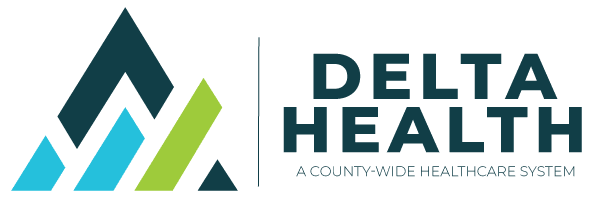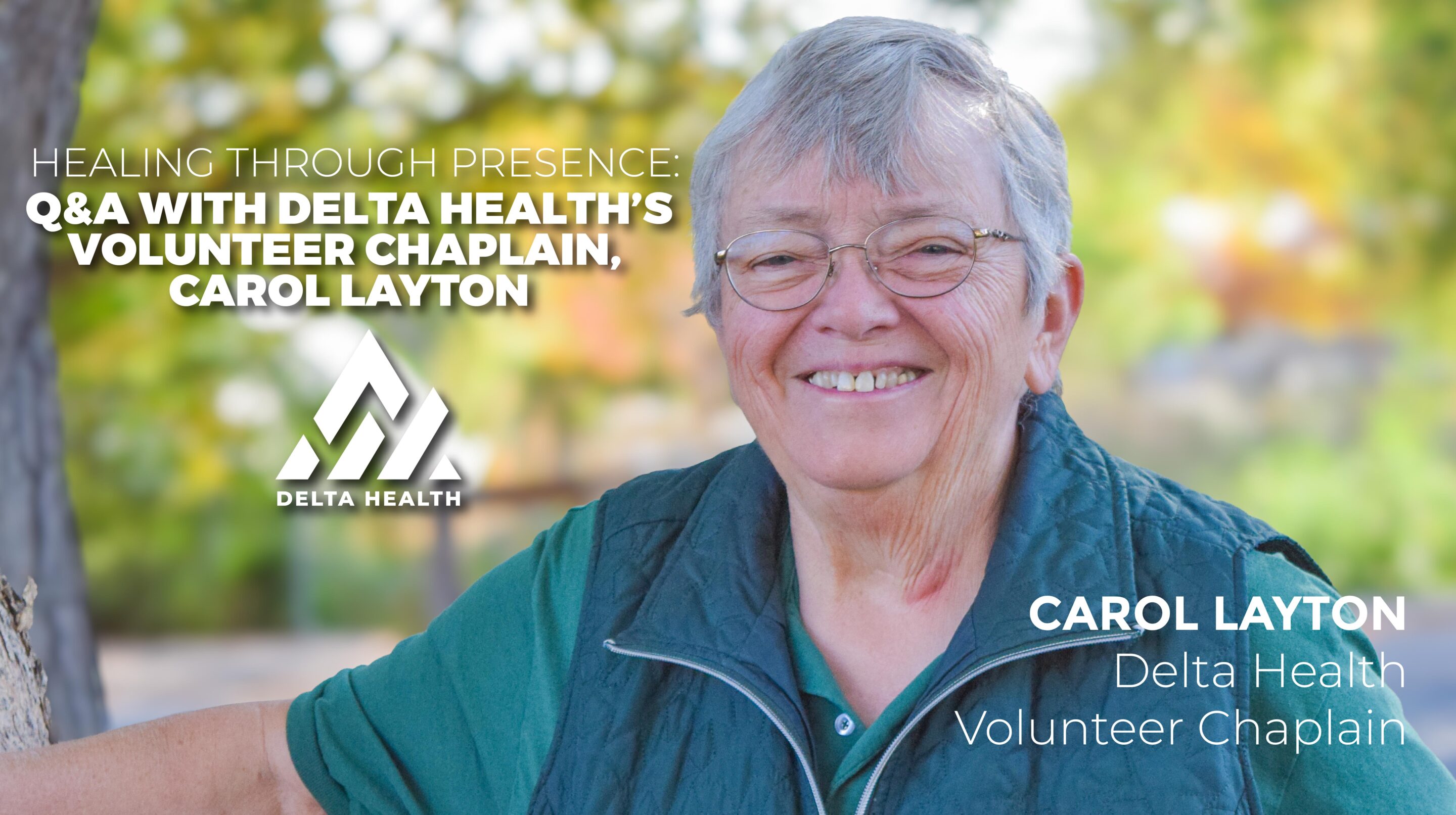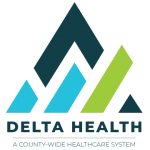For many patients, a trip to the hospital can be frightening and emotionally draining. That is why Delta Health’s Volunteer Chaplain program is dedicated to providing the community with spiritual care when needed. In partnership with area clergy, the Chaplains have a weekly call rotation and are available 24 hours a day, seven days a week for patients and family members.
The Chaplains are available to listen, sort out questions, pray, and offer overall support. We sat down with Carol Layton, one of the Volunteer Chaplains who has been doing chaplaincy work at Delta Health for many years. She shares her story of growing up in Olathe and how spiritual healing looks different for each person.
- How long have you been a chaplain at Delta Health?
Carol: I’ve been in ministry since 1996. I didn’t do a lot of chaplaincy until I got to California but I started doing chaplaincy in about 2000 or 2001 and have done it off and on ever since.
- Can you describe a typical day in your role as a volunteer chaplain?
Carol: For a typical day, I get to the hospital and I would go up to Med/Surg and check to see who’s there. If there’s no one I know I’ll wander and go to the different rooms and visit with people and ask them how they’re doing. If there are people that would like prayer I’ll pray with them. But quite often we wind up talking about fruit trees or animals or cows.
I seldom go into ICU or Labor and Delivery unless I’m requested. I check in at the Emergency Department (ED) but usually, when I’m here in the day things are calmer than usual there.
Then I go into Oncology and visit people in the Infusion Center and that’s usually just a conversation. It’s conversations about cows because I’m a farm kid. I just visit with them because the folks in the Infusion Center can’t go anywhere while getting treatment. It’s just visiting time.
I’ve made some friendships with people who happened to be in the Infusion Center when I made my rounds, and then I’ve met them later and become good friends.
With most of the people on Med/Surg I’m not finding a crisis so with that it’s more of a, “Hi, how are you doing.” Usually, people want to tell me something; especially if they’re someone from out of the area. They want to tell me something about themselves.
But if it’s an emergency where it is a crisis, then the first thing I do to prepare is I have a conversation with God. I say, “OK, God, give me the words here.” Because sometimes there aren’t any words. If someone has just passed away or I’m in the ED and there’s an accident there aren’t any words – it’s a presence.
- What are the most rewarding aspects of being a volunteer chaplain?
Carol: One day I was here doing rounds and I stopped in to see a lady and at the end of our visit I asked her if I could pray with her. Her comment to me was, “Well I really don’t believe in that stuff but go ahead.” Well, I can do anything from pagan to high church, and what I did was a prayer of healing without mentioning any religious words. And when I got through, this lady had an expression on her face that I think was like, “I didn’t know you could pray like that,” because apparently, she had been in a world where she’d gotten beaten to death with traditional prayer. And I said to her, “You can pray any old way.”
That experience was really rewarding to me to reach someone who had an apprehension when I had first walked in the door.
And then a couple of other times I’ve gone into visits with people from out of the area. They had been here camping and one of them wound up in the hospital or something and to be able to just see their faces when they know someone cares. Even though they are away from home and scared – that someone cares.
Another time in California was extremely rewarding and it involved a bad accident in the ED and children were involved. It was really chaotic and they were trying to get kids ready to be transported and connect families, and one of the doctors said, “Why don’t you round all of these people up and take them down to the chapel.” So I did. And we went down to the chapel.
Later on, one of the women involved told my husband, “Your wife was a rock. She was the one that was not emotionally involved.” And that told me something about this job. It told me that I can’t get emotionally involved when I’m with people. I have to stay a little bit outside of the situation to be effective.
- What challenges do you face in your role?
Carol: The real challenge is not being able to do enough. When something is going on and I walk out of the room feeling like nothing was done and then I walk out of a room feeling like that person is just as sad or just as miserable as when I walked in – that’s a challenge.
And that’s a challenge because I kind of want to make everyone feel welcome. And sometimes it doesn’t work that way. The challenge is to try to meet people where they are.
- How do you tailor your spiritual care to meet the diverse needs of patients and their families?
Carol: I am very attentive to my spiritual care all the time. Whether I’m working as a chaplain or not. How it looks varies from morning devotionals to taking a walk every day to make sure that I’m in as good of health as I can be physically and spiritually. That’s a big part of it. Another part is remembering to pray when I’m on my way here. I firmly believe that God hears prayers, and I don’t ask God for a lot of specifics, but more to give me the strength to be of service while I’m there at the hospital with people.
- What is the importance of chaplaincy services in a hospital setting?
It’s important that all aspects of a patient really be addressed. The doctors and nurses do a fantastic job with the physical part of healing, and they do a pretty good job with the mental side, but the spiritual side sometimes doesn’t have enough time. And as a Volunteer Chaplain, I’ve got all the time that I need to give to someone. When I come here I can give them five minutes or a half an hour. I think that’s when the spirit is well that healing happens easier. I think when the spirit is well, grief is a little easier to take. And it helps when people know they have someone there that cares.
We live in a world right now where people are so often alone. And in that loneliness sometimes our spirits die. When my mom was in the nursing home she would comment and say, “Everyone I know is dead.” I especially pay attention to the elderly because a lot of times when there’s an older person in the hospital they may be alone. Sometimes you just need to sit there and hold their hand.
- Tell us a little more about your background.
Carol: My background is odd. I grew up in Olathe which is a very small town where everyone knew everyone. At the time I was growing up everyone took care of everyone. If someone got hurt in a farming accident everyone went and helped them. I learned caregiving at a very young age. I learned that you care for your neighbors and you care for the people around you.
Then I joined the military, and in the military, you learn to care for the people around you. Because if you don’t care for your buddies you‘re going to put yourself in danger because you’re a team. In law enforcement. I learned compassion and straightness at the same time. There were a couple of cases where military police had to deal with medical emergencies if at that time women were allowed to become paramedics which they weren’t. This was a long time ago. I probably would have gone into paramedic stuff after the military because I really like that stuff. I like things that move quickly, but I also like to make a difference in people’s lives.
After a career in a whole entirely different world, God called me into ministry. I spent 20 years in pastoral ministry. That is when I learned that people really do need spiritual care even those who say the church is useless. What I would see is that people who came to church tended to handle the crisis of life a little bit better.
The reason I left my career is I wanted to make a difference in the lives of people, and as a chaplain and as a minister I do make a difference.
I also do grief support work with Hope West and vigil work sitting with people dying alone. I am convinced we should not enter this world alone and we should not leave this world alone.
- What do you like to do in your free time?
Carol: I like to do photography, I hike, and I like a lot of music. I like sports, just kind of all over the place. On Fridays that is my day off from everything, and that’s the day my husband and I will go somewhere like the monument or Black Canyon. Recently we went to Rangely just to go since we hadn’t been. We like to drive. We also have two grandkids in California.
I just enjoy life. I had an experience in 2010 where I experienced the skill of a good hospital from the inside out, and I very nearly died of septic pneumonia. That changed my whole perspective on life and my place in life. My job is to enjoy each day to the best of my ability whether volunteering at something, spending time out in the woods, or sitting at home reading a book – each day is a gift.



